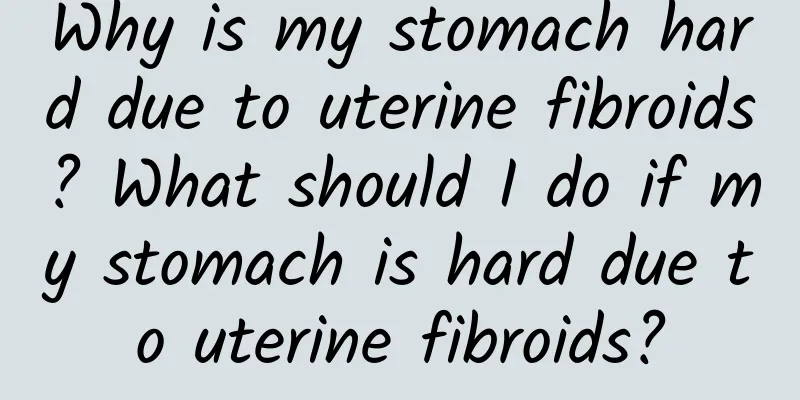What to eat during confinement? Daily calories 2100 kcal

|
"One person eats and two people benefit", during the confinement period after childbirth, mothers must pay attention to their calorie intake! Doctors point out that it is traditionally believed that a lot of supplements should be taken during the confinement period in order to restore physical strength; but eating too much high-calorie food not only fails to take in the necessary nutrients, but also affects the digestive function and causes constipation or edema, and may even cause problems such as postpartum obesity, which should not be underestimated. Confinement is very important, especially when one person is eating for two, and calorie intake cannot be neglected. Director Lin Yuhong of the Department of Obstetrics and Gynecology at Shin Kong Hospital mentioned in the upcoming book "480 Questions Answered about Pregnancy and Confinement" that during the confinement period, in order to restore physiological functions and meet breastfeeding needs, mothers should supplement about 300 to 500 calories more than normal women. The daily calorie intake should be controlled at around 2,100 calories, and the daily food types should be as consistent as possible with the six major food categories specified by the Department of Health, and the food types should be diversified as much as possible. Nutritional principles for breastfeeding mothers are very different How much nutrition does a pregnant woman need? The principle depends on whether the mother wants to breastfeed. Mothers who want to breastfeed their babies will need more calories, nutrients, and water to secrete milk with sufficient nutrients and quantity to supply their babies. If you are a mother who is not planning to breastfeed, a balanced diet and calorie intake should be the same as before pregnancy. 1. Mothers who do not breastfeed: Mothers who do not breastfeed can just follow the principle of a balanced diet and do not need to deliberately supplement calories. However, foods rich in protein, vitamins and iron should still be consumed in sufficient amounts to make up for the losses during pregnancy and childbirth. 30 mg of iron can be supplemented daily until 2 months after delivery. 2. Nutritional intake of breastfeeding mothers: Mothers who are preparing to breastfeed need more nutrition and calories. Among them, calories, protein, and calcium are the most important. Compared to non-pregnant women, breastfeeding mothers need the same 1,200 mg of calcium per day as pregnant women. It is recommended to consume 2 to 3 cups of milk (240 cc per cup) per day to supplement calcium. If calcium is insufficient, calcium tablets should be taken to supplement it. Postpartum obesity is a nightmare for many women. A balanced diet and moderate exercise are important. Tonic strategy: small and frequent meals To get rid of postpartum obesity, it is recommended that mothers should eat light food during the confinement period and avoid spicy, hot and fried foods. If you are worried about malnutrition, you can choose foods that are refreshing, easy to eat, and can supplement nutrition, such as corn porridge, lean pork soup, steamed eggs, red dates and barley porridge, etc., which are all good choices. During the confinement period, the mother should adopt the method of "small meals and frequent meals" in her diet to avoid bloating and indigestion caused by eating too much at one time. You can also eat more high-fiber fruits and vegetables, such as grapes, apples, red amaranth, and kale, which can effectively help excretion and gastrointestinal digestion. Eliminate edema and avoid cold food There is a traditional folk belief that drinking water during confinement will cause edema and difficulty in losing weight. Dr. Lin Yuhong emphasized that this is a wrong concept. Edema will disappear naturally after the uterus recovers, and it has nothing to do with whether you drink water or not. If a mother is afraid to drink water and consumes too little water, it is likely to cause urinary tract infection or stones. It should be noted that mothers should avoid drinking cold water during the confinement period, because cold water will cause the stomach and intestines to become cold, stimulate gastrointestinal absorption, and cause indigestion; and cold food can easily lead to blood stasis, causing symptoms such as postpartum abdominal pain and lochia. Therefore, cold drinks, low-temperature foods, raw and cold foods, etc. should be avoided and consumed less during the confinement period. Doctors recommend consuming more bean foods, which are very helpful for postpartum women to promote diuresis and reduce edema. Beans can be diuretic and reduce edema Dr. Lin Yuhong emphasized that it is important to make good use of bean foods during the confinement period. Because beans are high in nutritional value and have health benefits, they are a food that people often eat in their daily lives. Whether it is the refreshing mung bean soup, the hot red bean soup or the fragrant black soy milk, they all have their fans. For new mothers, beans are also very good food for postpartum confinement. For example, red beans have the effect of promoting lactation, black beans can be diuretic and reduce edema. They are very helpful for regulating vitality and restoring a slim figure after childbirth, and are economical and affordable. 【Reminders for postpartum care】: During the confinement period, you should take in a balanced amount of nutrients to help you recover quickly after delivery. If you need to breastfeed, you should increase your protein intake and eat more protein-rich foods, such as fish, meat, beans, eggs, and milk. In addition, foods such as pig's feet, peanuts, and crucian carp can also help increase milk secretion. In addition, it is recommended to drink more warm water every day, which is quite helpful for milk secretion. ★《You must eat this during confinement period》Please don’t tell your doctor! |
<<: A Big Mac addict who ate 12,000 servings and still didn't gain weight
>>: 4 Chinese medicine teas to help lose weight after childbirth
Recommend
Several dangers of dysmenorrhea that you need to pay attention to
In real life, many female friends feel irritable ...
What is endometrial thickening?
Endometrial thickening is a common uterine diseas...
Experts introduce relevant knowledge about allergic vaginitis
Allergic vaginitis is a gynecological disease tha...
What are the advantages of micron light treatment for cervical erosion? Three advantages of micron light treatment for cervical erosion
I believe everyone is familiar with cervical eros...
What is the common care for vulvar leukoplakia?
The occurrence of vulvar leukoplakia is very comm...
Resveratrol works! Eat more grapes and mulberries to get rid of fatty liver!
What would you do to end the modern civilization ...
Does uterine fibroid surgery affect pregnancy? What should I pay attention to after uterine fibroid surgery?
Uterine fibroids are a common gynecological disea...
How to diagnose uterine prolapse
Uterine prolapse refers to the uterus descending ...
Ovarian cyst symptoms for one month and how to diagnose
What are the symptoms of ovarian cysts for one mo...
Medication should be differentiated according to the type of vaginitis
Drug therapy is a commonly used treatment for vag...
TCM treatment of various syndromes of uterine fibroids
Uterine fibroids are the most common benign tumor...
Daily care for menopausal patients
When women reach the age of 50, they will experie...
How to take care of pelvic peritonitis?
We are all very familiar with pelvic peritonitis,...
What are the nursing methods for patients with Bartholinitis?
The cause of Bartholinitis is related to many fac...
What is the best medicine for women with chronic cervicitis? Precautions for medication for women with chronic cervicitis
Chronic cervicitis is a common cervical gynecolog...









